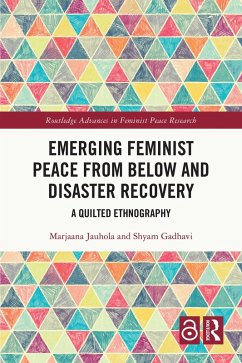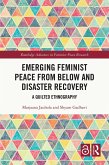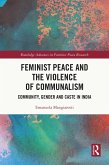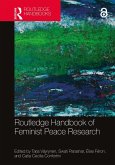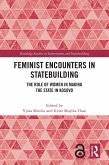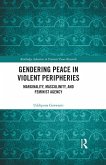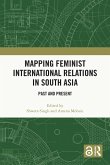Engaging in a feminist intersectional analysis of complex cascades of violence, the book uses a theoretical and methodological approach to studying cascades of violence of populist post-disaster recovery, communal violence, and urban development - each with implications for intersectional social divisions, ecology, and thus, everyday peace. The book follows the mundane everyday and life-historical trajectories of the residents of the temporary shelter neighbourhood in Bhuj, drawing attention to an emerging feminist peace from below through silent resistance, care, and solidarity. It demonstrates that the impacts of disaster populism in the name of being "pro-poor" do not impact the marginalised segments of the society and disaster-affected communities, even within the same neighbourhood of the dispossessed, in the same ways. Combining underexplored newspaper and project documentation archives, the speeches of Narendra Modi delivered in Kachchh, and urban life historical ethnography, the book offers a rich analysis of gendered and intersectional experiences of how dispossession and mundane violence are embedded in the earthquake recovery - and how international humanitarian aid and urban disaster recovery are entangled with complex cascades of violence.
This book will be of much interest to students of feminist theory, peace studies, post-disaster recovery, and South Asian politics.
The Open Access version of this book, available at www.taylorfrancis.com, has been made available under a Creative Commons Attribution (CC-BY) 4.0 license.
Dieser Download kann aus rechtlichen Gründen nur mit Rechnungsadresse in A, B, BG, CY, CZ, D, DK, EW, E, FIN, F, GR, HR, H, IRL, I, LT, L, LR, M, NL, PL, P, R, S, SLO, SK ausgeliefert werden.

